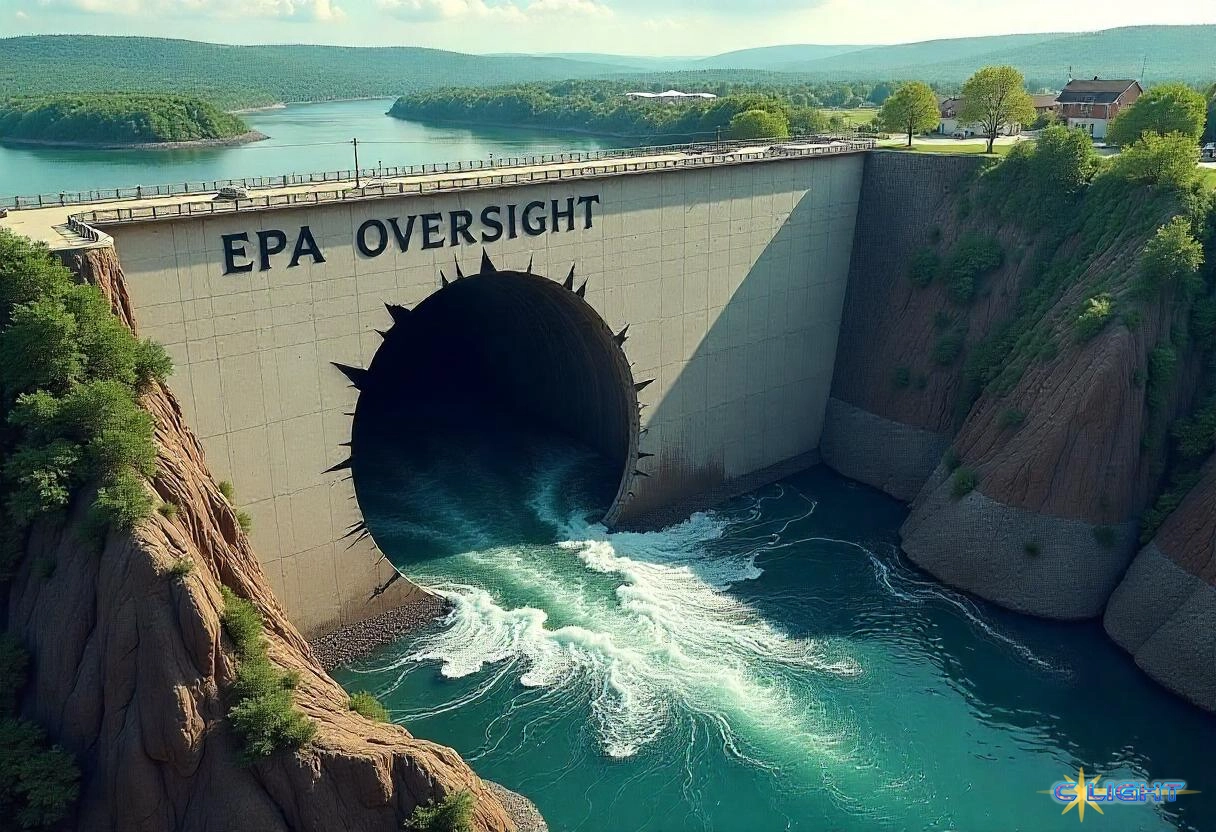As an editor, you develop certain internal metrics for measuring a story’s gravity. For crime, it might be the “Serial Killer Scale.” For politics, the “Watergate Scale.” But for environmental justice, for the kind of story that involves real people in small towns being poisoned by powerful forces that don’t give a damn about them, there is only one metric that matters: the “Brockovich Scale.” Is the story big enough, the injustice blatant enough, that the real Erin Brockovich would come charging in, kicking down doors, and refusing to take no for an answer?
This week, in a 6-3 decision that was as quiet as it was catastrophic, the Supreme Court handed down a ruling in Stinson v. EPA that doesn’t just register on the Brockovich Scale—it shatters it.
For those who don’t remember, Hinkley, California, was a small desert town whose residents discovered, through the tenacious, shoe-leather work of a legal clerk with no formal law training, that Pacific Gas & Electric had been poisoning their drinking water with a carcinogen for over 30 years. Erin Brockovich uncovered the truth, and the resulting lawsuit forced a record-breaking $333 million settlement. It was a story about corporate negligence, but more importantly, it was a story about the power of a single, determined person to hold that negligence to account.
The Supreme Court has just made that kind of accountability nearly impossible.
With the stroke of a pen, the Court’s conservative majority has effectively kneecapped the Environmental Protection Agency. In the majority opinion, Justice Gorsuch, citing the “major questions doctrine,” argued that the EPA, an agency filled with scientists and experts, cannot make broad rules to curb pollution without explicit, unambiguous permission from Congress—permission that, in our gridlocked political world, will never come.
In a fiery dissent, Justice Sotomayor saw the ruling for what it is: a judicial coup. She argued the majority has appointed itself, rather than the expert agency, as the nation’s chief environmental regulator, stripping the EPA of its power to address the most pressing threats of our time.
Let’s be clear about what this means. By taking away the EPA’s power to proactively curb pollution on a national scale, the Court has given a green light to every corporate polluter in America. It has single-handedly reset the clock, and now, every town is Hinkley. Every community with a factory, a refinery, or a power plant is once again at the mercy of big business—the guys who don’t give a damn if their pollution kills off a small town, because they don’t live there.
The tragedy of Hinkley wasn’t just the poison; it was the belief by the powerful that they could get away with it. The Supreme Court has just handed that same cynical confidence to boardrooms across the country. The burden of proof has been cruelly shifted. Instead of the EPA preventing a town from being poisoned, it will now be up to the citizens of that town, after their children are already sick, to prove they were harmed.
And therein lies the problem. We don’t have enough people like Erin Brockovich to do the difficult, soul-crushing work of hunting down the details, of connecting the illnesses to the chemicals, of building a case strong enough to challenge a billion-dollar corporation in court, and winning.

This ruling is a siren in the night. It is a devastating blow, but it is also a moment of terrible clarity. It is a call to arms. For too long, the environmental movement has been stereotyped as a passive statement—a bumper sticker on a VW, a canvas tote bag at the farmer’s market. This ruling proves that it is not enough. A bumper sticker cannot test your well water. A tote bag cannot file a lawsuit.
The environmental movement needs more than just people with good intentions; it needs people who can get in there and get their hands dirty fixing the engine. It needs a new generation of Brokoviches—people in every town willing to attend the boring zoning board meetings, to read the dense water quality reports, to knock on their neighbors’ doors and ask the hard questions.
The fight for environmental justice has been ripped from the halls of federal agencies and thrown back into our own backyards. The work is hard. The odds are long. The real work begins now.
Discover more from Clight Morning Analysis
Subscribe to get the latest posts sent to your email.










